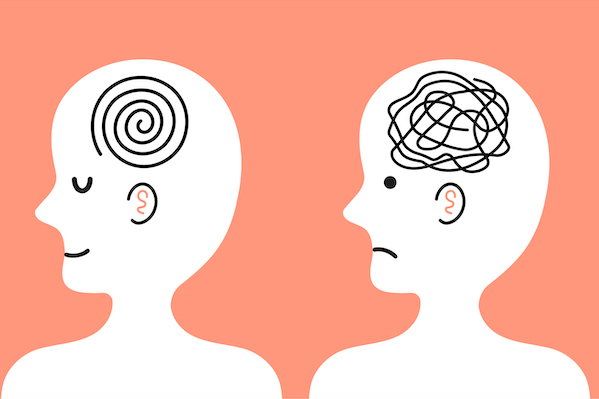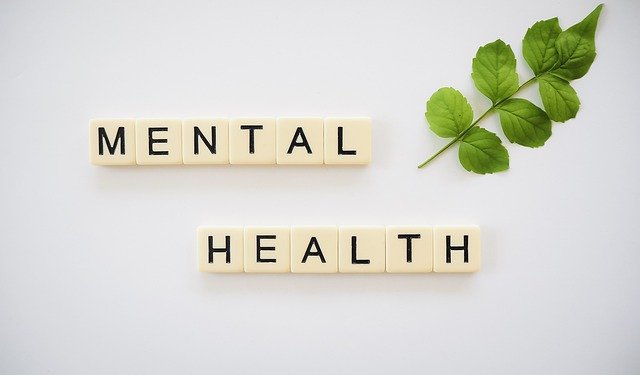What is Mental Clarity?
Definition of Mental Clarity
Mental clarity is the state of mind where you are focused, clear-headed, and able to think and make decisions with ease. It’s the absence of mental fog, distraction, or confusion. When you achieve mental clarity, your thoughts are sharp, and you’re able to process information effectively, leading to improved problem-solving and a deeper sense of calm.
Benefits of Mental Clarity
Mental clarity brings a host of benefits, including:
- Enhanced decision-making: Clear thinking leads to better decisions in both personal and professional life.
- Reduced stress: When your mind is clear, you can manage your emotions better, reducing feelings of overwhelm.
- Increased productivity: Clarity helps you stay on task, manage your time better, and focus on what matters most.
- Improved relationships: Clear thinking promotes more effective communication and problem resolution.
Why Mental Clarity is Important
Impact on Decision Making
When your mind is clear, you can assess situations more rationally and logically. This leads to more confident and informed decisions, whether in daily choices or critical life-changing moments. https://www.healthlawbenefits.org/ allows you to eliminate unnecessary noise and focus on what truly matters.
Emotional Well-being
Mental clarity is linked to emotional regulation. When you’re not clouded by confusion or mental clutter, you’re more likely to handle stress and negative emotions with greater resilience. You’ll find it easier to stay calm under pressure and maintain a balanced perspective on life.
Productivity and Focus
A cluttered mind makes it hard to concentrate, leading to decreased productivity. With mental clarity, you can focus intensely on tasks, work more efficiently, and make significant progress toward your goals. It also helps you avoid distractions, allowing you to stay present in the moment.
Common Barriers to Mental Clarity
Stress and Anxiety
Stress and anxiety are among the most significant barriers to mental clarity. When your mind is preoccupied with worries or negative thoughts, it becomes difficult to think clearly or make sound decisions. Chronic stress can also impact memory and cognitive function, creating a vicious cycle of mental fog.
Lack of Sleep
Sleep deprivation has a direct impact on cognitive function, making it harder to think clearly, remember details, and solve problems. A lack of sleep leaves you feeling sluggish, irritable, and mentally foggy, reducing your ability to focus and make decisions.
Information Overload
In today’s digital age, we are constantly bombarded with information from various sources. The overload of information can lead to decision paralysis and mental fatigue, making it difficult to concentrate on important tasks. Your brain needs time to process and filter out unnecessary information to maintain clarity.
How to Achieve Mental Clarity
Practicing Mindfulness
Mindfulness practices, such as meditation or deep breathing exercises, are powerful tools for clearing your mind and gaining mental clarity. Mindfulness helps you stay present, focus on the task at hand, and avoid being overwhelmed by distractions or emotional reactions. It’s a great way to reduce stress and promote calmness.
Organizing Your Environment
Clutter in your physical space can contribute to mental clutter. Take time to declutter and organize your workspace and home. A clean and tidy environment allows for better focus and can help reduce feelings of chaos. Organizing your surroundings gives you a clearer mental space to work and relax in.
Exercise and Physical Activity
Physical activity is not just good for your body—it’s also essential for mental clarity. Exercise increases blood flow to the brain, improving cognitive function, concentration, and memory. Regular physical activity can also help regulate emotions and reduce stress, leading to clearer thinking and a sharper mind.
Proper Nutrition for Brain Health
What you eat plays a crucial role in your mental clarity. A balanced diet rich in nutrients, such as omega-3 fatty acids, antioxidants, and vitamins, supports brain health. Foods like leafy greens, fatty fish, and berries promote cognitive function and protect against brain fog. Avoiding excessive sugar and processed foods can also help prevent mental sluggishness.
Journaling and Reflection
Writing down your thoughts through journaling can help clear your mind. Reflecting on your emotions, daily experiences, and goals gives you perspective and allows you to sort through mental clutter. It’s a great way to get to the root of any confusion or mental blocks you may be experiencing.
Mental Clarity Techniques to Boost Focus
Deep Breathing and Relaxation
Deep breathing exercises can help you relax and regain focus. Breathing deeply from your diaphragm sends signals to your body to relax, slowing your heart rate and reducing stress. This helps your mind return to a state of clarity, allowing you to tackle challenges with a calm and focused attitude.
Time Management Strategies
A key component of mental clarity is managing your time effectively. By organizing tasks and setting priorities, you can reduce the feeling of being overwhelmed and focus on what matters most. Time management techniques like the Pomodoro Technique or time blocking can help you maintain focus and prevent burnout.
Eliminating Distractions
Distractions are one of the biggest enemies of mental clarity. Whether it’s your phone, social media, or constant notifications, these distractions fragment your focus and mental energy. Eliminate or minimize distractions by turning off notifications, setting boundaries, and dedicating specific times for focused work.
The Role of Sleep in Mental Clarity
Importance of Quality Sleep
Getting enough sleep is one of the most important factors in achieving and maintaining mental clarity. Sleep allows your brain to process and consolidate information, repair itself, and prepare for the next day. Without sufficient rest, your cognitive abilities are significantly impaired, and mental fog takes over.
Sleep and Cognitive Function
Quality sleep supports cognitive functions like memory, learning, problem-solving, and decision-making. During sleep, your brain works to clear out waste products and build connections that help with clarity the following day. Sleep deprivation, on the other hand, leads to brain fog, poor concentration, and impaired decision-making.
Maintaining Mental Clarity Over Time
Consistency and Routine
To maintain mental clarity in the long term, consistency is key. Establish a daily routine that incorporates mindfulness, physical activity, proper nutrition, and adequate sleep. By making these practices a habit, you create a mental environment that supports focus and clarity.
Periodic Digital Detox
Taking regular breaks from digital devices can also help maintain mental clarity. Constant exposure to screens and information can be overwhelming. A digital detox allows your mind to rest and recharge, preventing mental fatigue and improving focus when you return to your tasks.
Conclusion: A Clear Mind Equals a Fulfilling Life
Mental clarity is a powerful tool for living a fulfilling and productive life. By understanding the barriers to clarity and taking steps to improve focus, organization, and emotional well-being, you can unlock your full potential. Whether through mindfulness, exercise, or better sleep, small changes can lead to profound improvements in your mental clarity, leading to a happier and more successful life.





